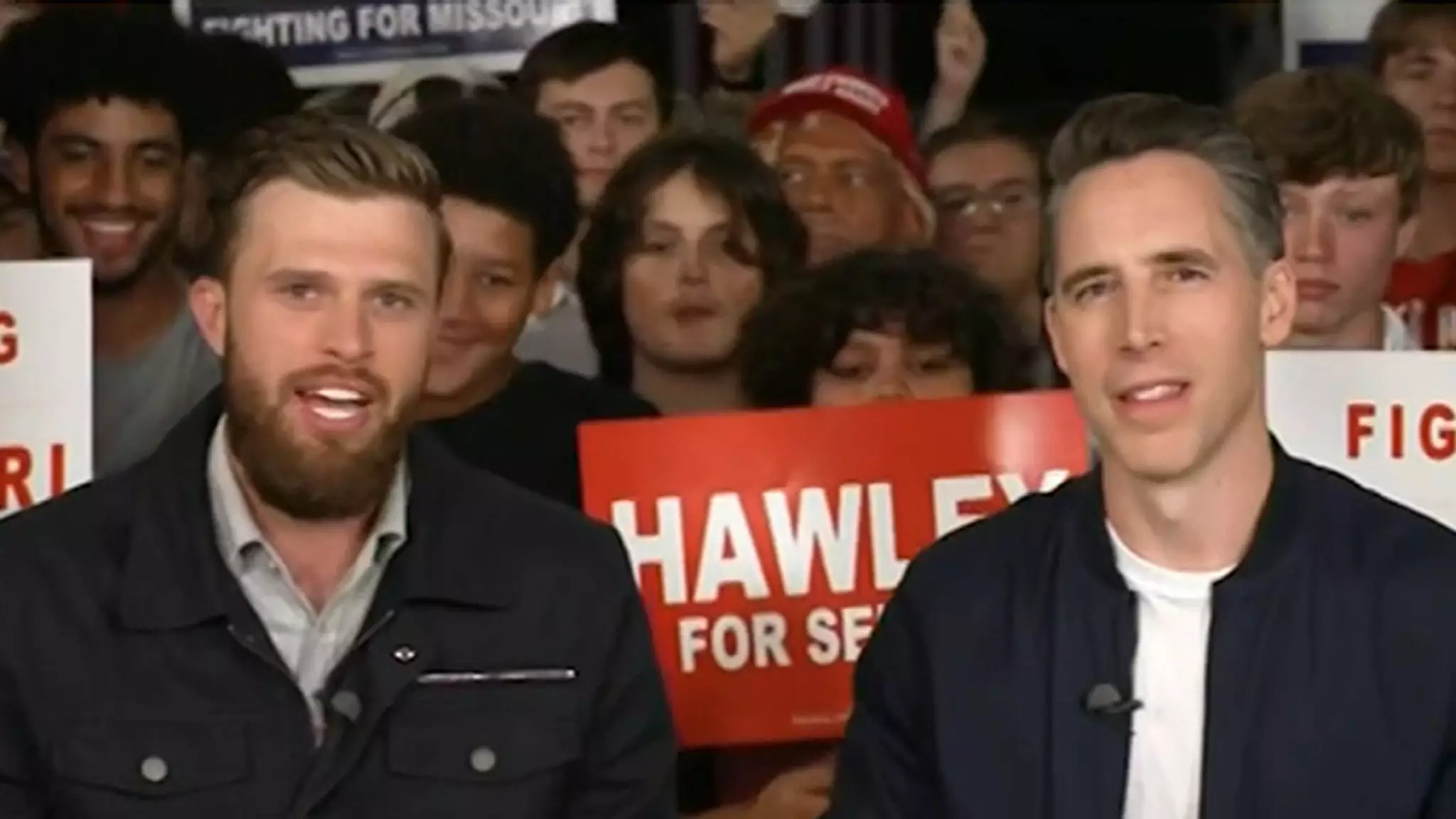In the realm of sports and politics, few athletes have traversed the boundary with the conviction seen in Kansas City Chiefs kicker Harrison Butker. Butker, a three-time Super Bowl champion, has emerged as a staunch supporter of Donald Trump, positioning himself as a significant voice in the pro-life movement. During a recent campaign event in Missouri for Senator Josh Hawley, Butker made it clear that, for him, the pro-life issue transcends all other political concerns. This commitment highlights a growing trend of athletes using their platforms to influence political discourse, especially on contentious issues like abortion.
Butker’s pro-life stance is deeply rooted in his personal beliefs, reflecting his strong religious convictions. At just 29, he articulates a clear perspective on the value of life, emphasizing the importance of advocating for the most vulnerable among us, specifically the unborn. This approach resonates with many in the pro-life community, who often argue that political leadership should prioritize the protection of life at all stages. Butker’s assertion is particularly poignant in today’s polarized political climate where individual beliefs are frequently overshadowed by party lines. His insistence that voters should choose the candidate who embodies pro-life values showcases a unique blend of faith and activism that is becoming more prevalent in the public sphere.
While his support for Trump has ignited enthusiasm among like-minded individuals, it has also invited scrutiny and criticism. In the wake of a previous commencement speech at Benedictine College, where his comments garnered accusations of misogyny, Butker expressed regret that his intentions were misconstrued. He stated that his aim was to celebrate and uplift women who choose the traditional role of homemaker and caregiver. This incident underscores the challenges faced by public figures when expressing personal beliefs, particularly in a culture that often interprets statements through a lens of political correctness. Butker’s clarification is an attempt to bridge the gap between his intentions and public perception, which can sometimes be an uphill battle for those in the limelight.
The support extends beyond merely choosing a political candidate; it reflects a lifestyle commitment for Butker, who positions his faith and family at the forefront of his identity. As the election season intensifies, it will be interesting to observe how fellow athletes respond to the political climate. While some, like Patrick Mahomes’ wife, Brittany, appear to lean in favor of Trump, others like Mahomes and Travis Kelce have remained ambiguous in their endorsements. This dichotomy within the Chiefs’ organization may hint at a broader conversation about how athletes navigate their personal beliefs in a highly scrutinized social environment.
With just weeks left until the election, Butker’s enthusiasm for Trump’s candidacy and his call for prayerful, faith-driven decisions suggest a growing intersection between sports figures and political activism. As more athletes take a stand on pivotal issues, the question remains: will this influence change the landscape of political engagement amongst younger voters? Butker’s narrative serves as a crucial reminder of the power of conviction, whether on the football field or in the polling booth. As election day looms closer, the nation watches, not just for policy implications but for the voices of champions standing up for what they believe.

